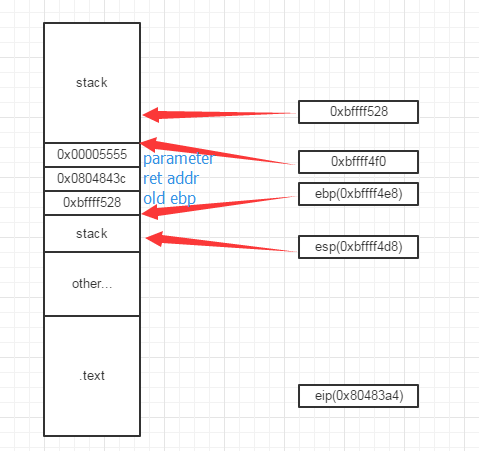What is the call stack look like when called a func ?
Source code
#include <stdio.h>
int global_ini = 0x1111;
int global_unini;
int func_op(void) {return 0;}
int func(int i)
{
unsigned long long val = 64;
val = 0xffffeeeeddddcccc;
global_unini = i;
return global_unini;
}
#define MAX_WORD 16
int main(void)
{
unsigned int i = 0;
char words[MAX_WORD] = "Hello world";
char word;
int (*func_point)(void) = &func_op;
i = 0xabcd;
if(i != 0x1234)
{
i = 0;
}
while(i == 0)
{
i++;
}
func(0x5555);
i = func_point();
for(i = 0; i < MAX_WORD-1; i++)
{
word = words[i];
}
return 0;
}
Dump the ELF file info
Get the structure of assemble using command: readefl -a, the out put is here
Get assembly code of the source code (it is in the .text section), run the command:
objdump -d assemble, the output is here
Debug assemble
Set breakpoint
Run the command to start gdb, and stop at main:
gdb assemble
start
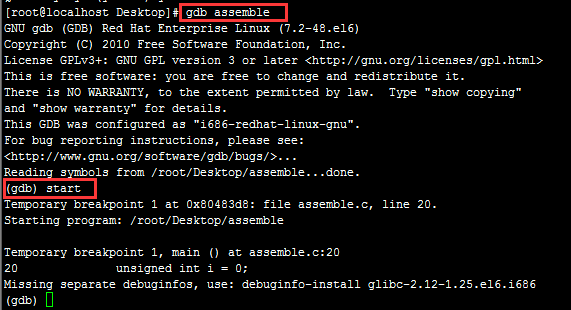
Run the command b to set the break point before call the func and in the func, then continue to make the program stop at calling func.
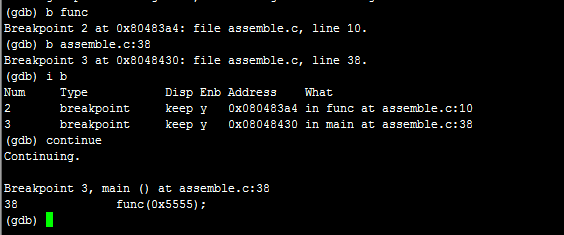
Stack of main
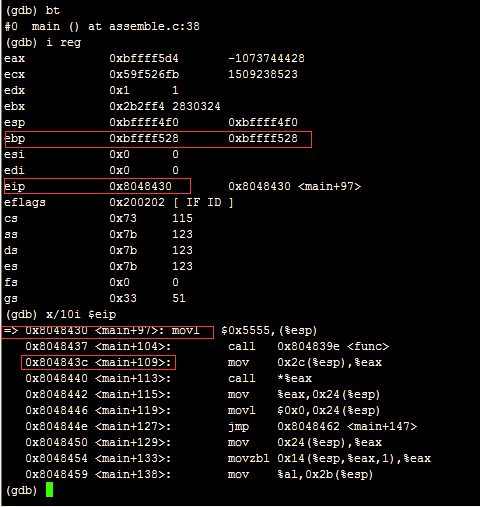
We can find that: The parameter 0x5555 will be push to stack first, then it is the return address. (“call” will push the address 0x804843c to stack), then eip point to the beginning of func Then we can draw the outline of the VA space:
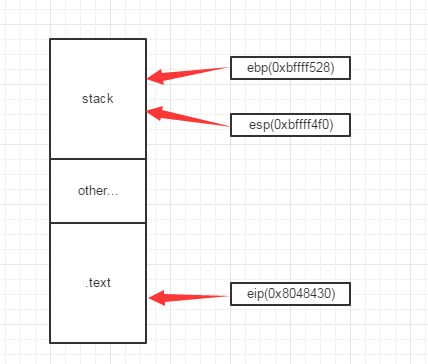
Stack of func
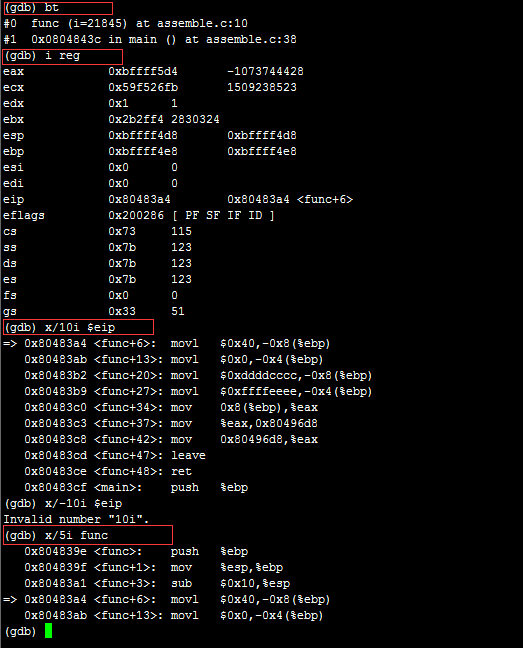
We can find that, the program has been in func, then we can get the stack info:

It means it will push the ebp to the stack first, then make ebp point to esp, and sub esp, the stack outline like this:
